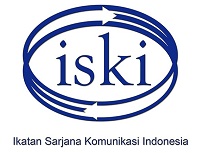Creating shared values as a new paradigm of Corporate Social Responsibility
Abstract
Background: Bank Sumsel Babel is faced with demands to focus on not only financial growth but also the positive impact on social and environmental fronts. The evolution of Corporate Social Responsibility (CSR) to Creating Shared Value (CSV) reflects a paradigm shift. As a regional development bank, Bank Sumsel Babel faces the demand to adopt CSV as an integral part of its CSR strategy to create a positive impact on society and the environment in the South Sumatra and Bangka Belitung regions. Purpose: This research explored the company’s strategy in implementing the Creating Shared Value (CSV) program as a new paradigm of CSR at Bank Sumsel Babel and analyzed the program publication to improve its reputation. Methods: This research used a descriptive qualitative research method to see the implementation of CSV at Bank Sumsel Babel. The researchers obtained data through interviews, observations, and document analysis. Results: Bank Sumsel Babel has successfully integrated the CSV approach into its CSR activities, particularly through the Bina Mitra program. This program has helped the bank address social issues such as education and community development and enhanced its business performance by building trust and loyalty among stakeholders. Conclusion: Companies can implement CSV-based CSR in some areas, while in other areas, they can use more traditional approaches, such as philanthropy or donations, to achieve a positive social impact. Implications: Bank Sumsel Babel can improve business performance and bring a positive impact on society through Creating Shared Value (CSV) programs as part of its CSR strategy.
Keywords
Full Text:
PDFReferences
Abdussamad, Z. (2021). Metode penelitian kualitatif. Syakir Media Press
Annual Report PT Bank Pembangunan Daerah Sumatera Selatan. Tahun 2022
Carroll, A. B. (2021). Corporate social responsibility: Perspectives on the csr construct’s development and future. Business & Society, 60(6), 1258-1278. https://doi.org/10.1177/00076503211001765
Daniri, M.A. (2021). Lead by csv (paradigma baru dalam penerapan csr). Pustaka Kaji
Esen, E. (2013). The influence of corporate social responsibility (CSR) activities on building corporate reputation. International business, sustainability and corporate social responsibility. (133-150). Emerald Group Publishing Limited.
Kholis, A. (2020). Corporate social responsibility (konsep dan implementasi). Economic and Business Publishing
Khushi, N., & Khurana, D. (2023). Corporate Social Responsibility. Vidhyayana - An International Multidisciplinary Peer-Reviewed E-Journal - ISSN 2454-8596, 8(si6), 724–732. Retrieved from http://vidhyayanaejournal.org/journal/article/view/779
Kim, R. C. (2018). Can creating shared value (CSV) and the United Nations Sustainable Development Goals (UN SDGs) collaborate for a better world? Insights from East Asia. Sustainability, 10(11), 4128.
Księżak, P. (2017). The benefits from csr for a company and society. Journal of Corporate Responsibility and Leadership, 3(4), 53. https://doi.org/10.12775/jcrl.2016.023
Lindawati, A.S.L. & Puspita, M.E. (2015). Corporate social responsibility: Implikasi stakeholder dan legitimacy gap dalam peningkatan kinerja perusahaan. Jurnal Akuntansi Multiparadigma, 6 (1), 157-159.
Marsiona, T.S. (2016). Implementasi strategi csr bank Jatim. Jurnal Ilmiah Mahasiswa FEB, 9 (2), 12-18.
Moravcikova, K., Stefanikova, Ľ., & Rypakova, M. (2015). CSR reporting as an important tool of CSR communication. Procedia Economics and finance, 26, 332-338.
Reyes Jr, G., Scholz, M., & Smith, N. C. (2017). Beyond the “Win-Win” creating shared value requires ethical frameworks. California Management Review, 59(2), 142-167.
Rodriguez-Gomez, S., Arco-Castro, M. L., Lopez-Perez, M. V., & Rodríguez-Ariza, L. (2020). Where does CSR come from and where does it go? A review of the state of the art. Administrative Sciences, 10(3), 60.
Sabini, M.N. & Ganiem, L.M. (2015). Corporate Social Responsibility sebagai Strategi Komunikasi Bisnis perusahaan. Jurnal Komunikasi ASPIKOM, 2 (5), 347-355.
Schoeneborn, D., Morsing, M., & Crane, A. (2020). Formative perspectives on the relation between csr communication and csr practices: pathways for walking, talking, and t(w)alking. Business & Society, 59(1), 5-33. https://doi.org/10.1177/0007650319845091
Shabana, K. M., Buchholtz, A. K., & Carroll, A. B. (2017). The institutionalization of corporate social responsibility reporting. Business & Society, 56(8), 1107-1135. https://doi.org/10.1177/0007650316628177
Sheehy, B. (2015). Defining CSR: Problems and solutions. Journal of business ethics, 131, 625-648.
Siregar, I. (2021). CSR-based corporate environmental policy implementation. British Journal of Environmental Studies, 1(1), 51-57.
Situmeang, I.V.O. (2016). Corporate social responsibility (dipandang dari perspektif komunikasi organisasi). Ekuilibria.
Tahir, I., Rauf, I., Pitafi, A.H., Xiaobei, L., Mahmood, R., Irfan, M., & Mubarak, M.S. (2021). The impact of corporate social responsibility on customer loyalty: The mediating role of corporate reputation, customer satisfaction, and trust, Sustainable Production and Consumption, 25, 123-135. https://doi.org/10.1016/j.spc.2020.07.019.
Voltan, A., Hervieux, C., & Mills, A. (2017). Examining the win‐win proposition of shared value across contexts: Implications for future application. Business Ethics: A European Review, 26(4), 347-368.
Wati, L.N. (2019). model corporate social responsibility (csr). Myria Publisher
www.banksumselbabel.com, 2022. CSR, Accessed from https://www.banksumselbabel.com/id/csr
www.banksumselbabel.com,2022. Produk, Accessed from https://www.banksumselbabel.com/id/product
Yogasrini, M. (2016). Implementasi create shared value (csv) pada PT. Holcim Indonesia Tbk. Jurnal Ilmiah Mahasiswa FEB, 9 (1), 4-6.
Zaman, R., Jain, T., Samara, G., & Jamali, D. (2022). Corporate governance meets corporate social responsibility: mapping the interface. Business & Society, 61(3), 690-752. https://doi.org/10.1177/0007650320973415
DOI: https://doi.org/10.24198/jkk.v12i1.54745
Refbacks
- There are currently no refbacks.
Copyright (c) 2024 Muhammad Mifta Farid

This work is licensed under a Creative Commons Attribution-NonCommercial-ShareAlike 4.0 International License.
Jurnal Kajian Komunikasi Indexed by:
Editorial Office of Jurnal Kajian Komunikasi:
Faculty of Communication Science, Universitas Padjadjaran
Jl. Raya Bandung-Sumedang Km. 21 Jatinangor, Sumedang 45363, Indonesia
WA: +6282316731181 (Chat Only)
Telephone: +62227796954
Faxmile: +62227794122
E-mail: jurnal.kajian.komunikasi@unpad.ac.id
Jurnal Kajian Komunikasi Supervised by:










